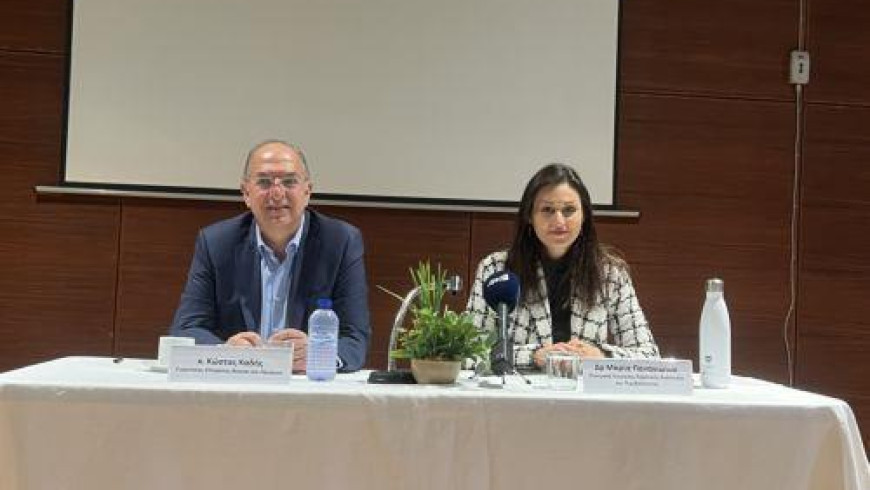
Our government's priorities are interwoven with our commitment to integrating technology and digitalization into our policies said the Deputy Minister to the President, Irene Piki, on Tuesday, adding that effective governance is not only about systems and structures but also about putting people and their needs at the centre of every decision made.
She was addressing the 6th Digital Agenda Cyprus Summit which is taking place in Nicosia Municipal Theatre, entitled "Shaping Tomorrow: The Confluence of Government Priorities and Technology".
President of the House of Representatives, Annita Demetriou, said at her opening address that in the face of these turbulent times, it is apparent that digital transformation can bring both promising developments and challenges. She said that Cyprus has already recognised the importance of digital transformation and is committed to embrace digital technologies and innovation aiming to become a fit for future society and a knowledge-based economy enabled by digital technologies.
She added that in this light, the Republic of Cyprus is currently implementing the national Digital Strategy for 2020-2025, which is broadly aligned with the EU digital strategy.
Demetriou noted that Cyprus has been also consistent in taking the required measures to improve the provision of digital public services and in this regard, the House of Representatives has made a top priority out of both modernizing its own operations and enhancing public participation through digital means.
Piki said in her speech that the global economic crisis of 2012, followed by subsequent crises such as health and geopolitical/energy crises, on a global scale, affected the course of events in Cyprus and created a chain reaction of changes in the daily life of the citizens, primarily influencing their economic situations and subsequently, as expected, their socio-political perceptions.
As a result, she continued, there is a devaluation of the political system, reflected in high rates of abstention, with the highest recorded during the Parliamentary Elections of 2021.
She explained that through the Governance Program, a new Social Contract with citizens has already been implemented based on a human-centred governance plan, adding that in this plan, the focus of all policies is on the citizen, as well as on the modernization of the state, society, and institutions. “The long-term goal is the reconstruction of the middle class”, she mentioned.
Piki said that the core principles underpinning the Governance Programme include placing people at the core, ensuring a sustainable and resilient economy, a modern fair, participatory and transparent governance, and promoting the green and digital transitions.
She underlined that “our Government adheres to a three-pillar approach that will subsequently increase our competitiveness: fiscal discipline through government budget surpluses, to be able to adequately support those mostly in need, a stable and healthy financial sector and continuous structural reforms.”
Piki said that the GDP growth rate in 2024 is estimated at 2,9% adding that the 2024 budget prioritises strengthening social spending and implementing development projects and reforms outlined in the Recovery and Resilience Plan while maintaining fiscal discipline. Furthermore, she continued, in 2024 an increase of around 15% is expected in expenditure on social benefits. She added that fiscal surplus for 2024 has been estimated at 2,2% of GDP with a medium-term goal of public debt below 60% by the end of 2026.
“Our government focus is on untangling and accelerating the execution of a long pipeline of projects by adding expertise and resources to the effort undertaken by the Deputy Ministry of Research, Innovation and Digital Policy,” she noted.
She referred to the actions that Government has already taken to this direction, saying that “The focus will be on key digitalisation initiatives that can significantly enhance public service efficiency and improve people's and businesses' engagement with it.”














 3287.99
3287.99 1275.09
1275.09
